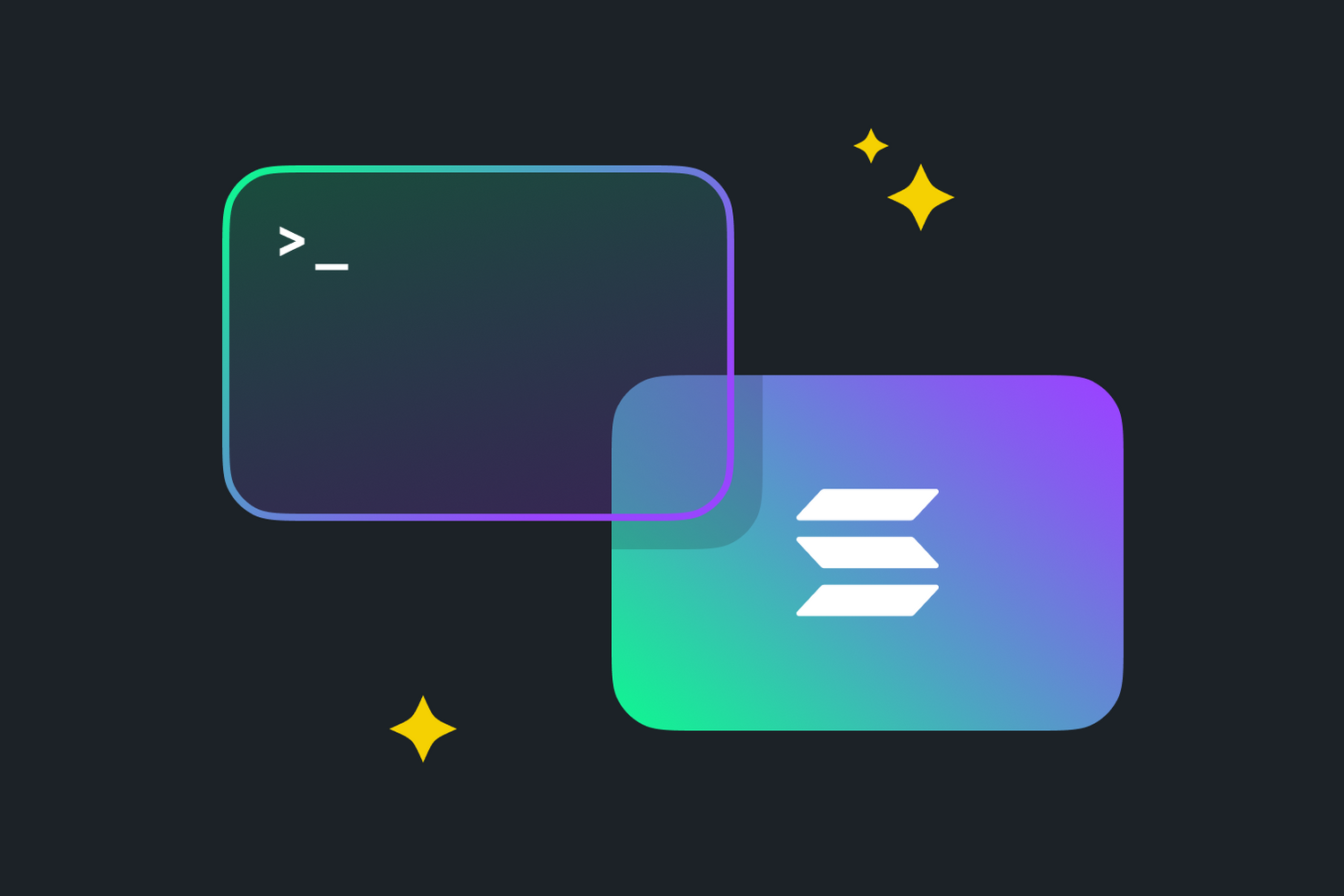How to Get Started Developing on Solana
TL;DR
If you’re considering developing on Solana, this guide provides the background information and key steps you can take to get started.
- Prerequisites for development: basic programming knowledge and understanding of blockchain
- Know the key features of the Solana architecture like Proof of History, Tower BFT, and turbine
- Find out the tools you need to get started: Rust, CLI, SPL
- Essential Resources for Solana development
As we’ve covered extensively in this curriculum, participating in the Solana ecosystem as a user can be a rewarding journey. However, if you have some background in computer programming, you may be considering building on Solana yourself. Whether you're an entrepreneur with a blockchain-based business idea or simply curious about the technology, all the tools you need to get started are right here for you.
This guide provides introductory information and resources to help you navigate the basics of Solana development, making it accessible even if you don't have a technical background. By the end, you'll have some key concepts and the resources to start creating decentralized applications (dApps) in web3.
Understanding Solana and Its Role in Blockchain
Solana is known for its speed, security, low transaction costs, and high throughput. Solana can handle thousands of transactions per second (TPS), making it an ideal platform for applications from DeFi to DePIN, gaming, NFTs, and more sectors that are evolving out of web3 technology.
Due to its speed, cheap transactions costs, and other traits which set it apart from other blockchain ecosystems, Solana is a desirable platform for developers looking to build and deploy decentralized applications.
Besides the technical specs, Solana’s strong global community and impactful in-person events further encourage developers to collaborate and experiment with dApps that will benefit the entire Solana community.
Prerequisites for Solana Development
Before you begin developing on Solana, it's essential to have a background in the basics of blockchain and some knowledge of computer programming.
Basic Programming Knowledge: A solid foundation in programming is crucial. Familiarity with languages such as JavaScript, Python, and Rust will be beneficial, as these are commonly used in blockchain development. Solana uses Rust for smart contract development. While Rust is known for its performance and safety features, it has a steeper learning curve compared to languages like JavaScript or Python.
Understanding of Blockchain Concepts: A thorough understanding of blockchain fundamentals, such as consensus mechanisms, smart contracts, and dApp development, is vital. This knowledge will help you grasp how Solana differs from other blockchain platforms and enable you to effectively set up your development environment.
Learn more about the basics of the Solana Network in our explainer What Are Validators?
Useful Tools for Solana Programming
Development tools in web3 have some overlap with web2, but there are new resources you’ll find yourself using every day. Here is our shortlist of Solana programming resources - we encourage you to bookmark these as you’ll be using them frequently.
Solana supports smart contracts written in Rust, a general purpose programming language, and provides developer-friendly tools like the Solana Command Line Interface (CLI) and Software Development Kits (SDKs) for various programming languages.
Rust Programming Language: Solana programs are primarily written in Rust, so you'll need to install Rust on your computer.
Solana CLI (Command Line Interface): This tool allows you to interact with the Solana network, manage accounts, and deploy programs.
Git: Version control is crucial for managing your code and collaborating with others.
Code Editor: A text editor or IDE for writing code. Popular choices include Visual Studio Code with Rust extensions.
Solana Web3.js: A JavaScript library for interacting with the Solana network from your applications.
Solflare Wallet (or another Solana wallet): Useful for testing your applications and managing Solana accounts.
Solana Program Library (SPL): A collection of on-chain programs that you can use in your projects.
Anchor: A framework that simplifies Solana program development.
Solana Test Validator: You may want to run your own test validator node for testing your programs in a local environment before deploying to a testnet or mainnet.
Solana Architecture Overview: Solana Labs provides an overview of the key elements of the Solana infrastructure, from its consensus mechanism to various essential optimizations.
Get to know the types of platforms building on Solana right now in our Guide to the Solana Ecosystem
Essential Resources for Solana Development
Solana is all about the community, and there are many community-sourced resources that will assist you on your Solana development journey including:
Web Development Fundamentals: An overview of requisite knowledge for developing for the web.
Solana Official Documentation: A comprehensive guide that covers installation, key concepts, and advanced topics. It's the best place to get accurate and up-to-date information directly from the source.
Solana Cookbook: Provides practical examples and tutorials, ranging from basic concepts to complex applications, with hands-on code samples.
Solana Playground: An interactive platform where you can experiment with Solana smart contracts and interact with the blockchain directly from your browser.
Solana Developer Hub: Features tutorials, API references, and other educational content aimed at helping developers get started with Solana.
Solana Forum: A community-driven space where developers discuss Solana-related topics, share ideas, and troubleshoot issues.
Solana Discord Server: A vibrant community where you can engage with other developers, ask questions, and get real-time support.
Solana GitHub Repository: Contains the source code for the Solana blockchain and its related projects, offering deeper insights into how Solana operates.
Solana YouTube Channel: Features video tutorials, webinars, and presentations about Solana development, making it a helpful resource for visual learners.
Don’t forget: Building on Solana is a collective effort. You’ll find like minded developers on crypto twitter, in Solana telegram groups, and in the Discord channels for popular projects. It’s great practice as a developer to mingle with the Solana community online or at in-person events to supercharge your blockchain programming skills.
